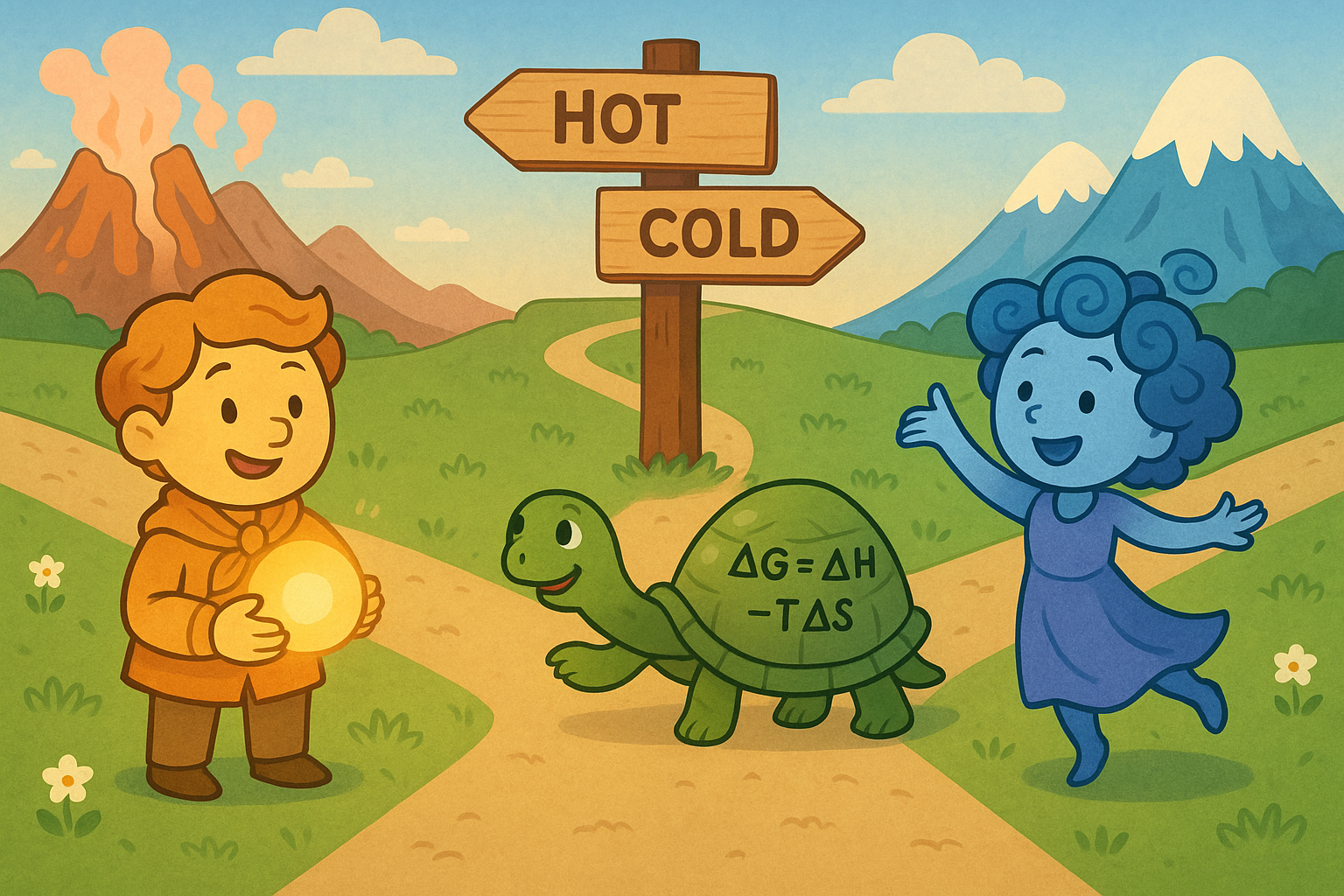Chapter 4: The Perfect Picnic Spot
The twins discover how temperature affects their journey...

The twins stood at a crossroads, unsure which path to take. Before them were three valleys: one steaming hot, one freezing cold, and one just right.
"This is where it gets interesting," said Gibbs the Guide. "The perfect picnic spot depends not just on enthalpy and entropy, but also on temperature."
"At high temperatures," Gibbs continued, pointing to the hot valley, "entropy becomes more important. The TΔS term in our equation grows larger."
"And at low temperatures," he said, gesturing to the cold valley, "enthalpy dominates because the TΔS term is smaller."
The twins looked at each other with understanding dawning on their faces.
"So the perfect picnic spot..." Enthalpy began.
"...is where ΔG is negative!" Entropy finished. "Where ΔH - TΔS gives us a negative number!"
"Exactly!" Gibbs smiled. "When ΔG is negative, the process is spontaneous—it happens naturally, without any push. That's your perfect picnic spot!"
Spontaneity and Temperature
Temperature (T) determines whether enthalpy (ΔH) or entropy (ΔS) has more influence on spontaneity. At high T, the TΔS term becomes more significant. At low T, ΔH dominates.
Common Questions:
How does temperature affect spontaneity?
Temperature (T) determines whether enthalpy (ΔH) or entropy (ΔS) has more influence on spontaneity. At high temperatures, the TΔS term becomes more significant. At low temperatures, ΔH dominates.
When is a process spontaneous?
A process is spontaneous when ΔG is negative. This can happen when: ΔH is negative and ΔS is positive (spontaneous at all temperatures), ΔH is negative and ΔS is negative (spontaneous at low temperatures), or ΔH is positive and ΔS is positive (spontaneous at high temperatures).
What is the perfect picnic spot in thermodynamic terms?
The perfect picnic spot is where ΔG is negative, meaning the process happens spontaneously without any external input. This depends on the balance between enthalpy (ΔH), entropy (ΔS), and temperature (T).